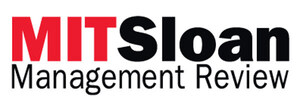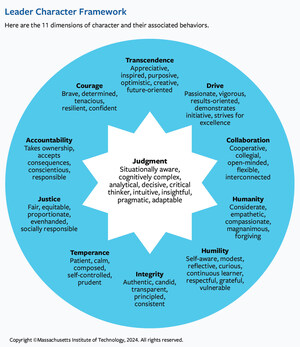In a significant new paper published in MIT Sloan Management Review, Nobel laureate Daniel Kahneman and strategy professors Dan Lovallo and Olivier Sibony introduce a new approach to making smarter strategic decisions.
Traditional decision-making practices are vulnerable to cognitive bias and flawed thinking. The new model introduces quality-assurance to the process and leads to higher-quality, less-costly decisions.
CAMBRIDGE, Mass., March 4, 2019 /PRNewswire/ -- Nobel laureate Daniel Kahneman and strategy professors Dan Lovallo and Olivier Sibony offer a breakthrough approach to complex decision-making in a significant new paper, "A Structured Approach to Strategic Decisions," published today by MIT Sloan Management Review.
Whatever else it produces, any organization is a decision factory. Yet, companies tend to approach their most complex decisions — including both one-off and recurrent strategic decisions — without discipline and rigor. As a result, high-stakes judgments are vulnerable to a slew of cognitive biases and random errors ("noise"), often leading to costly outcomes.
The antidote to this vulnerability is a structured, broadly applicable approach proven to reduce errors in decision-making. The authors introduce a method they call the Mediating Assessments Protocol (MAP), which injects discipline into decision-making, tempers the effects of bias and flawed thinking, and ultimately brings some much-needed quality assurance to complex decisions.
"Important facts are less likely to be overlooked, and thoughtful, self-critical consideration of trade-offs is much more likely to occur," the authors write. "In this way, using MAP triggers conscious reflection."
The article describes the core elements of MAP:
- Define the mediating assessments in advance. Decision makers must identify a handful of key attributes that are critical to the evaluation, just as they would when writing a job description for an open position.
- Use fact-based, independently made assessments. People who weigh in on one aspect of a strategic option should not be influenced by one another — or by other dimensions of the option. Their opinions should be grounded in the evidence available. This approach is comparable to a well-organized structured-interview process, in which job seekers are scored on each key attribute solely on the basis of their answers to relevant questions, calibrated using predefined scales.
- Make the final evaluation when the mediating assessments are complete. Unless a "deal breaker" fact is uncovered early on, the final decision should be discussed only when all key attributes have been scored and a complete profile of assessments is available. This is similar to having a hiring committee review all the evaluations made by each interviewer on each key requirement of the job description before making a decision on a candidate.
Using this framework, the authors examine MAP's application and benefits in two types of strategy decisions: large one-off decisions made by teams of executives or directors (large acquisition), and recurrent decisions made as part of formalized processes that, in aggregate, shape a company's strategy (launching new products). They demonstrate how structure and mediating assessments can reduce bias, facilitate learning, provide standardization, and make it easier to conduct postmortems of past decisions.
"[MAP] is easy to learn, involves a minimal amount of additional work, and leaves senior executives some freedom to exercise intuitive judgment, albeit after a useful delay," conclude the authors. "As such, it should be a valuable tool for any leader who aims to raise the quality of an organization's decisions."
To read the full article, please visit: "A Structured Approach to Strategic Decisions".
About the authors:
Daniel Kahneman is the Eugene Higgins Professor of Psychology Emeritus at Princeton University. He received the Nobel Prize in Economic Sciences in 2002 for his work (with Amos Tversky) on cognitive biases. Dan Lovallo is a professor of business strategy at the University of Sydney and a senior adviser to McKinsey & Company. Olivier Sibony (@siboliv) is an affiliate professor of strategy and business policy at HEC Paris; an associate fellow at Saïd Business School, University of Oxford; and a consultant specializing in the quality of strategic thinking.
About MIT Sloan Management Review:
A media company based at the MIT Sloan School of Management, MIT Sloan Management Review's mission is to lead the conversation among research scholars, business executives, and other thought leaders about advances in management practice, especially those shaped by technology, that are transforming how people lead and innovate. MIT Sloan Management Review captures for thoughtful managers the creativity, excitement, and opportunity generated by rapid organizational, technological, and societal change.
Contact:
Emily Lavelle |
|
Emily Lavelle Communications |
|
+1-212-390-1328 |
|
|
|
SOURCE MIT Sloan Management Review
Related Links
WANT YOUR COMPANY'S NEWS FEATURED ON PRNEWSWIRE.COM?
Newsrooms &
Influencers
Digital Media
Outlets
Journalists
Opted In






Share this article